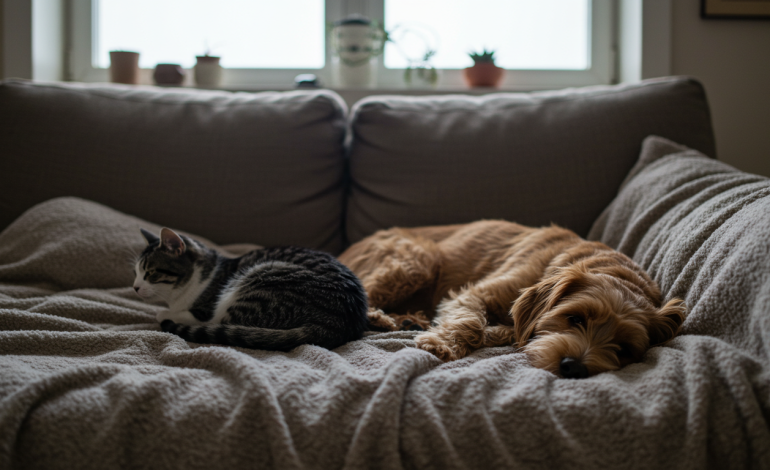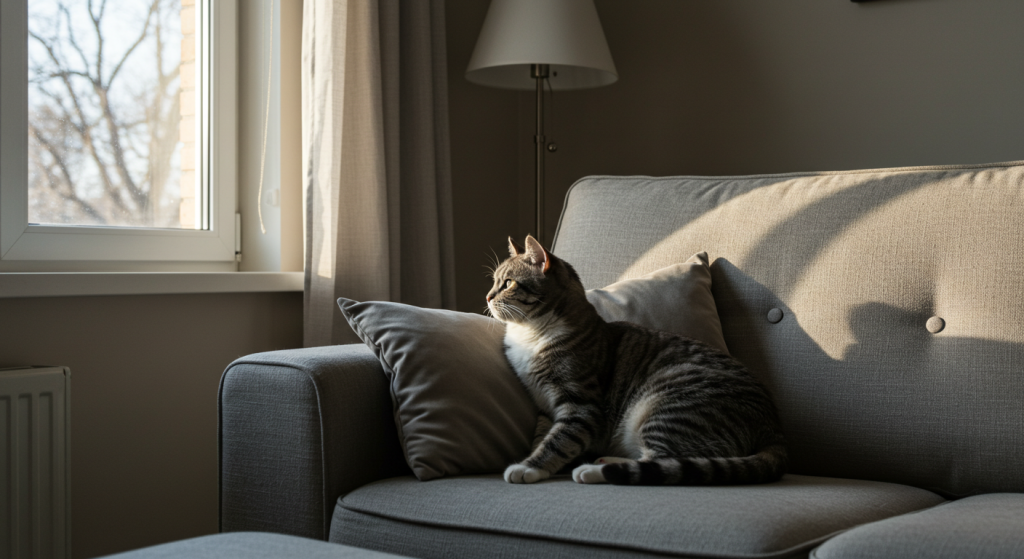Cat vs. Dog: How to Choose the Perfect Pet for Your Lifestyle

When it comes to deciding whether a cat or a dog is the best fit for your home, it’s essential to consider your lifestyle, preferences, and the specific needs of each animal. The decision between a cat vs. dog can often be a tough one, as both animals offer unique benefits. By understanding the differences and the needs of both types of pets, you can make an informed choice that aligns with your daily routine.

The Fundamental Differences Between Cats and Dogs
Understanding the basic characteristics of cats and dogs will give you a clearer picture of which pet fits your lifestyle. Cats vs. dogs are different in many ways, from their temperament to their care requirements. Here’s a breakdown of these differences to help you understand what each animal brings to the table:
Cats Are Independent, Dogs Are Social
One of the most significant differences between cats vs. dogs is their social behavior. Cats are often seen as more independent, requiring less attention and care throughout the day. This can make them an excellent choice for people who work long hours or have a busy schedule. Cats are happy to entertain themselves and are usually content to curl up in a quiet corner until you’re home.
In contrast, dogs are highly social animals that crave companionship and interaction. They require daily walks, playtime, and attention from their owners. If you’re someone who enjoys outdoor activities or has more time to dedicate to a pet, a dog may be the perfect choice.

Space Requirements: Cats vs. Dogs in Your Home
Space is another key factor when choosing between a cat and a dog. Cats generally don’t need as much space to roam around. They are often happy in smaller apartments or homes, as long as they have a comfortable place to rest and some entertainment (like scratching posts or toys).
Dogs, on the other hand, can vary greatly in their space needs. Larger breeds require more room to move around and may need access to a backyard or regular outdoor exercise. Smaller dogs can be comfortable in apartments, but they still require regular walks to stay healthy and happy.
Time Commitment: How Much Time Can You Dedicate?
Choosing between a cat vs. dog depends largely on how much time you have to dedicate to your pet.
Cat vs. Dog:Dogs Need More Attention and Exercise
If you’re considering a dog, it’s important to remember that they need significant time and attention every day. Dogs require regular walks, playtime, and socialization to stay well-behaved and healthy. A dog that is left alone for extended periods may develop behavioral issues such as barking, chewing, or even separation anxiety.
Cats Are Low-Maintenance
On the other hand, cats are more low-maintenance. They don’t require walks, and their litter box can be cleaned just once or twice a day. If you have a busy schedule, a cat may be a better fit for your lifestyle. They don’t demand constant interaction, and they’re usually content with just being near their human companions.

Grooming: Cats vs. Dogs, Best pets for busy people
Both cats and dogs need regular grooming, but the requirements vary significantly depending on the breed.
Grooming for Cats
Most cats are independent when it comes to grooming. They typically groom themselves regularly, and brushing them once a week is often sufficient, especially for short-haired breeds. Long-haired cats may need more frequent grooming to prevent matting, but overall, cats are much easier to maintain in terms of grooming.
Grooming for Dogs
Grooming dogs can be a more involved process, depending on the breed. While short-haired dogs may require minimal brushing, long-haired breeds can need regular grooming to prevent tangles and matting. Dogs that are regularly outside may also need baths more frequently. Therefore, dogs can be more high-maintenance when it comes to grooming compared to cats.
Training: Cat vs. Dog Behavior
Training your pet is another important aspect to consider when deciding between a cat vs. dog.
Dogs Need Consistent Training
Dogs typically require more training, especially when it comes to housebreaking, obedience, and socialization. Training a dog can take time and patience, but it’s essential to establish rules and boundaries early on. Some dogs are more eager to please, making them easier to train, while others may be more independent or stubborn.
Cats Are Naturally Litter Trained
Cats are usually much easier to litter train and are often more self-sufficient in this regard. They will naturally seek out a litter box and use it without much assistance. However, cats may have specific preferences when it comes to the type of litter, and some may be more particular about their environment.
Allergies: Consider Your Health When Choosing Between Cats and Dogs
Allergies are a common concern when deciding whether to adopt a cat or dog. Pet allergies are typically caused by proteins found in a pet’s skin cells, urine, or saliva.
Cat Allergies
Many people are allergic to cats due to the proteins found in their dander. If you or someone in your household suffers from allergies, it’s important to consider this before adopting a cat. Some breeds, like the Siberian, are considered hypoallergenic, but it’s best to consult with an allergist before making a decision.
Dog Allergies
While dog allergies are also common, certain breeds are less likely to trigger allergic reactions. Poodle mixes and Shih Tzus are often recommended for people with allergies because they shed less dander.
Costs of Owning a Cat vs. Dog
The cost of owning a pet varies significantly depending on the type of animal and its needs. When comparing a cat vs. dog, it’s important to consider the long-term expenses of pet ownership.
Dog Costs
Dogs often come with higher costs, such as more frequent veterinary visits, food, toys, and grooming supplies. Certain breeds may also require specific care or have health issues that require extra expenses. Additionally, some dog breeds may need to be insured for specific conditions, increasing the overall cost.
Cat Costs
Cats tend to have lower initial costs compared to dogs, especially in terms of food and grooming. However, some cats may require specific diets or have health conditions that can increase their expenses. While cats typically don’t need as much veterinary care as dogs, it’s important to set aside funds for regular check-ups and vaccinations.
Conclusion: Choosing Between a Cat vs. Dog for Your Lifestyle
In the end, the decision of whether a cat or dog is right for you depends on your personal preferences and lifestyle. If you have a busy schedule and prefer a more independent pet, a cat may be a better fit. However, if you have the time, energy, and space to dedicate to a more social and active companion, a dog could be the ideal choice.
By considering factors such as time commitment, grooming needs, space, and social behavior, you can make an informed decision that ensures a long, happy relationship with your new pet. Remember that both cats and dogs offer incredible companionship and love, and the right pet for you is the one that fits seamlessly into your life.
Explore More About Pets
Looking for more information on your favorite pets? Check out these categories on our blog:
- Cats – Learn more about caring for your feline friends.
- Dogs – Everything you need to know about dogs, from breeds to training tips.
- Pet Care and Wellness – Tips and advice to keep your pets healthy and happy.
- Pet Lifestyle – Explore the lifestyle of pet owners and how pets fit into your daily life.
- Pet Adoption and Rescue – Find out how to adopt a pet and the benefits of rescuing animals.









